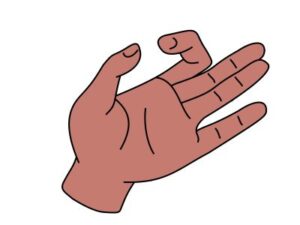As freelance writers, we know to include a bio with our queries or pitches—one that provides links to published pieces and that aligns with the type of submissions a magazine is looking for.
There is something else we need to consider adding to our bios or pitches—”Almosts.” Almosts are what I refer to as submissions (mainly those to literary magazines) that have not made the final cut in a contest, nomination, or other but have earned an honorable mention or a place on a magazine’s shortlist or longlist. These additions to your bio, website, or resume can prove invaluable in getting future literary assignments or having your completed submission noticed, especially for beginning writers.
A shortlist is at the top of the hierarchy of Almosts. Once initial reviewers have determined which entries are to be deleted from the competition altogether, an editor or team of reviewers decides which remaining entries are eligible for placement on a shortlist.
A shortlist is a list of next-in-lines should the winner (or one of the winners in the case of more than one) drop out or be eliminated. An entrant’s chronological place on a shortlist is, in turn, determined by its importance or suitability.
A longlist is second in the hierarchy of Almosts. It is a list of runners-up from which the shortlist is obtained, and, like a shortlist, placement is decided according to its importance or suitability.
The honorable mentions category is usually last in the hierarchy of Almosts.
Think of this sequence of Almosts as the line of succession of a prince or princess to the throne. The oldest son or daughter of a king or queen is usually next in line of succession should the king or queen die or abdicate; next in line would be the son or daughter of that king or queen in the order of their birth. And so on. The further down the line of succession, the less likely you are to become king or queen. It is the same with the hierarchy of Almosts.
So, say your entry came in last in one of these categories. (My flash-fiction piece in CRAFT’S Dialogue Challenge was second to last in its Honorary Mention category. Even so, I was elated.) Coming in last or near last is still an achievement, and it gives a reviewer or reviewers some indication of your writing ability when you submit your query, pitch, or completed piece.
An Almost might also include an editor’s praise of your writing ability even though the editorial team passed on publishing your submission or if your submission failed to come in as an Almost. We writers need encouragement and affirmation occasionally. An editor’s praise can provide this. This praise can also be used in your bio; however, don’t prattle on and on about the praise you received, and be sure you can back up said praise with a link, PDF, or other if asked.
When you submit to magazines, especially literary magazines, you are competing with submissions from all over the country and, often, the world. While your Almost or Almosts may initially get an editor’s notice and get you a foot in the door, so to speak, you still have to provide exactly what you promised in your query or pitch. You also have to provide an exceptional piece. Magazine editors are overflowing with submissions of great writing.
The following are four good literary markets, especially for emerging writers:
CRAFT (paying market with no submission fee) is open year-round to emerging and established writers. CRAFT accepts fiction, creative nonfiction, craft essays, and interviews.
The Masters Review New Voices category (paying market with no submission fee) is open year-round to any new or emerging writer “who has not published a novel-length work of fiction or narrative nonfiction with a major press.”
The Kenyon Review (paying market with no submission fee) is open between September 1 and September 30 for general admissions. The Kenyon Review publishes short fiction, essays, flash fiction, and excerpts from larger works.
The Missouri Review (paying market with a small submission fee of $4) is open year-round. The Missouri Review publishes poetry, fiction, essays, book reviews, and nonfiction.
Short Bio– Barbara Weddle is a freelance writer living in Kentucky. She has been writing for more than 30 years and has been published more than 400 times.
Thank you, Barbara! This article was informative as well as encouraging. I had not given much previous consideration to my “almosts,” but I am leaving here realizing the value in these mentions. I appreciate it!